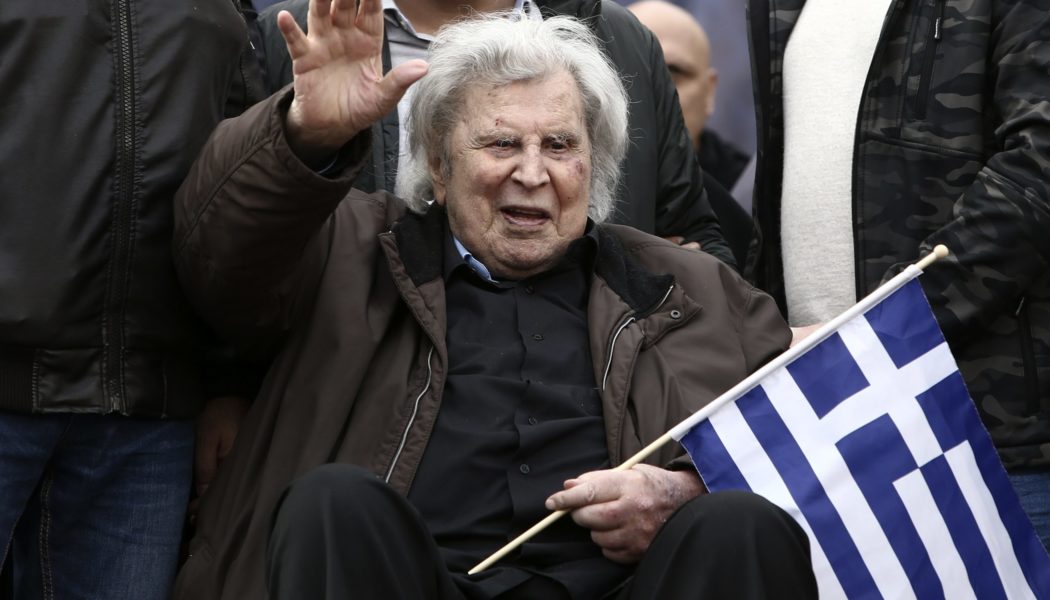
A court had temporarily halted burial plans pending resolution of the dispute. Greece’s national broadcaster said a final decision on details of the burial is expected Tuesday morning.
Theodorakis died on Sept. 2 at 96. His daughter had said he would be buried near Corinth in the village of Vrahati, where he maintained a holiday home.
But a letter Theodorakis had written to the mayor of the town of Chania in Crete in 2013 was made public, in which the composer said he wanted to be buried in the nearby cemetery of Galatas, despite his family’s disagreement.
Theodorakis was as well-known in Greece for his political activism as for his musical career. He penned a wide range of work, from somber symphonies to popular television and film scores, including for Serpico and Zorba the Greek.
He is also remembered for his opposition to the military junta that ruled Greece from 1967-1974, a time during which he was persecuted and jailed, and his music outlawed.
Greece’s Communist Party said over the weekend that Theodorakis’ body will lie in state beginning Monday, and a “farewell ceremony” will be held Wednesday, before the late composer is flown to Crete. The church service and burial will be on Thursday.
Theodorakis had a tumultuous relationship with the Communist Party, known by its Greek acronym KKE, leaving it in the late 1960s, rejoining in the late 1970s and getting elected as a lawmaker with the conservative New Democracy party in 1990.
But he wrote a letter in October to Communist Party Secretary-General Dimitris Koutsoumbas, essentially entrusting him with the funeral arrangements.
“Now, at the end of my life, at the time of taking stock, details are erased from my mind and the ‘Big Things’ remain. So, I see that I spent my most crucial, forceful and mature years under KKE’s banner. For this reason, I want to depart this world as a communist,” Theodorakis wrote.











